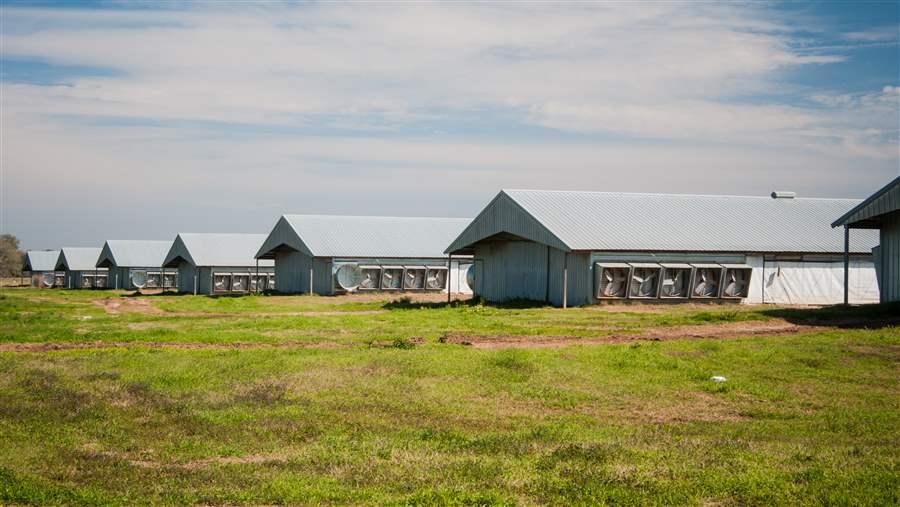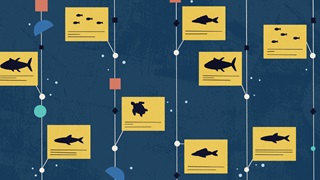What Practices Reduce Antibiotic Use in Food Animals?
Pew to support analysis of existing scientific data, identify gaps
Antibiotics are crucial to protecting the health of people and animals, but any use endangers their efficacy as bacteria develop resistance to them over time. Each year, at least 23,000 Americans die and some 2 million are sickened from antibiotic-resistant bacterial infections. To help preserve the effectiveness of these lifesaving drugs, Pew’s antibiotic resistance project works to promote antibiotic stewardship in both human medicine and animal agriculture. In the case of food-producing animals, this means using antibiotics judiciously and trying to prevent animals from becoming sick in the first place.
Good animal management practices—such as optimal nutrition, housing, and age at weaning—can lead to fewer diseases and thereby reduce the need to use antibiotics. Yet there has been little rigorous analysis of the existing scientific evidence that quantifies how different management practices affect animal health and antibiotic use. Pew is committed to supporting research that will survey the existing scientific literature and address three key questions.
First, what scientific evidence is available to show the impact of different practices on disease prevalence and the need to use medically important antibiotics in food animals? Second, what key data gaps exist in the scientific evidence, and how do they impede the ability to make animal management decisions that are grounded in science? And third, what research is needed to fill those gaps?
Pew seeks to support research studies that can help answer these questions, inform strategies to reduce the use of antibiotics without harm to animal health, and guide future scientific studies. If you or your organization is interested in learning more about this research opportunity, please email [email protected] for the Request for Proposals (RFP) form.
To preserve these lifesaving drugs and protect both human and animal health, we need to survey the science that has already been done, find the gaps in that knowledge, and fill in the missing pieces.
Karin Hoelzer, a veterinarian, works on The Pew Charitable Trusts’ antibiotic resistance and safe food projects.
Any entity interested in receiving the full RFP and being given the opportunity to submit a proposal should submit an expression of interest (EOI) by 5 p.m. EST on December 20, 2017, by email to [email protected]. The Pew Charitable Trusts will distribute the full RFP with additional details on timing, evaluation and proposal criteria, terms and conditions, and due diligence to those entities that have submitted an EOI by such date, and any other entities at its discretion. EOIs are not binding; submission of an EOI does not obligate a respondent to submit a proposal. Proposals must be received by February 1, 2018, to receive consideration. Questions regarding the RFP should be submitted by 5 p.m. EST on December 21, 2017.
PLEASE NOTE: If you requested the RFP via e-mail and have not yet received it, please send a new email to [email protected] and cc Rick Heyeck ([email protected]). Due to technical difficulties some e-mails may not have been received. The dates for submission of EOIs and proposals have been extended due to these technical difficulties.












